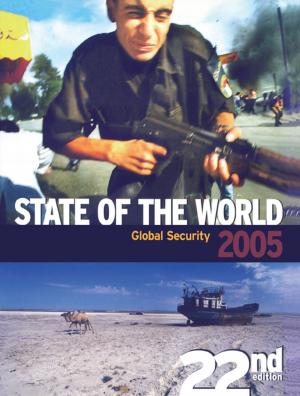Cold War in the Congo
The Confrontation of Cuban Military Forces, 1960-1967
Nonfiction, History, Africa| Author: | Frank Villafana | ISBN: | 9781351313308 |
| Publisher: | Taylor and Francis | Publication: | September 29, 2017 |
| Imprint: | Routledge | Language: | English |
| Author: | Frank Villafana |
| ISBN: | 9781351313308 |
| Publisher: | Taylor and Francis |
| Publication: | September 29, 2017 |
| Imprint: | Routledge |
| Language: | English |
It is widely acknowledged that Congo became an East- West battlefield during the first half of the decade of the 1960s, yet the participation of Cuban exiles in the struggles is rarely noted. In this absorbing volume Villafana details the contribution made by Cuban exiles to the preservation of democracy in Congo.
When Congo was given its independence by Belgium in 1960, most of its people believed their new government had been installed by the West and opposed it. Anti-colonial, anti-government Congolese patriots started fighting. Some were pro-communist, some anti-communist, and most didn't know the difference. Many countries were involved on both sides of this conflict: Cuba, the Soviet Union, The People's Republic of China, the United States (represented by military advisors, the CIA and Cuban exiles), Belgium, France, the United Kingdom, and several African nations. The Cold War made the involvement of some of these countries predictable, but not the Cuban involvement.
Villafana explores reasons for Castro's involvement in Congo. He considers whether Castro was operating with a master plan, of which Africa was a key. He discusses why Castro chose Che Guevara to head the ill-fated military expedition. He contemplates why the United States allowed Castro to freely export his revolution, and why it used Cuban exiles to prevent the mineral riches of Congo from falling into the hands of international communism. Villafana shows that CIA-sponsored Miami Cuban exiles were instrumental in thwarting Castro's plans for Congo, which were believed to have included a confederacy with Tanzania and Congo (Brazzaville), to gain control of Central Africa and its vast resources.
It is widely acknowledged that Congo became an East- West battlefield during the first half of the decade of the 1960s, yet the participation of Cuban exiles in the struggles is rarely noted. In this absorbing volume Villafana details the contribution made by Cuban exiles to the preservation of democracy in Congo.
When Congo was given its independence by Belgium in 1960, most of its people believed their new government had been installed by the West and opposed it. Anti-colonial, anti-government Congolese patriots started fighting. Some were pro-communist, some anti-communist, and most didn't know the difference. Many countries were involved on both sides of this conflict: Cuba, the Soviet Union, The People's Republic of China, the United States (represented by military advisors, the CIA and Cuban exiles), Belgium, France, the United Kingdom, and several African nations. The Cold War made the involvement of some of these countries predictable, but not the Cuban involvement.
Villafana explores reasons for Castro's involvement in Congo. He considers whether Castro was operating with a master plan, of which Africa was a key. He discusses why Castro chose Che Guevara to head the ill-fated military expedition. He contemplates why the United States allowed Castro to freely export his revolution, and why it used Cuban exiles to prevent the mineral riches of Congo from falling into the hands of international communism. Villafana shows that CIA-sponsored Miami Cuban exiles were instrumental in thwarting Castro's plans for Congo, which were believed to have included a confederacy with Tanzania and Congo (Brazzaville), to gain control of Central Africa and its vast resources.















